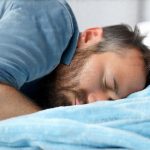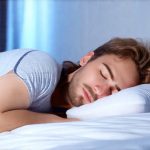The experience of needing to urinate frequently in the evening can be unsettling, particularly when it feels different from your usual pattern. It’s a common concern that often prompts questions: is this just something temporary, or does it signal an underlying issue? Many factors contribute to how and when we use the bathroom, and a shift in nighttime frequency isn’t always cause for immediate alarm. However, recognizing changes and understanding potential causes are crucial first steps toward addressing any discomfort or anxiety. It’s important to differentiate between occasional fluctuations and persistent patterns that disrupt sleep or daily life – it is these disruptive, ongoing shifts that warrant further investigation.
This article aims to explore the complexities of evening urination frequency, delving into possible explanations ranging from lifestyle factors to potential medical considerations. We’ll look at what constitutes an “unusual” pattern for you, how to identify contributing elements, and when seeking professional advice becomes important. The goal isn’t to diagnose, but rather to empower you with information and a better understanding of your body, allowing for informed conversations with healthcare professionals if needed. Remember that everyone’s experience is unique, and what feels frequent or unusual varies greatly from person to person.
Understanding Normal Bladder Function & Evening Changes
The bladder’s function isn’t simply about holding urine; it’s a dynamic process governed by complex neurological signals and hormonal influences. During the day, we consciously control urination, but this control shifts somewhat at night. Antidiuretic hormone (ADH) typically increases in the evening, reducing urine production during sleep. This is why most people experience less need to urinate overnight compared to daytime hours. However, several factors can disrupt this natural process, leading to increased nighttime frequency – a condition known medically as nocturia. The “normal” range for urination varies widely depending on fluid intake, diet, age, and underlying health conditions, making it difficult to define a precise number of times someone should urinate.
The perception of what’s “unusual” is highly personal. If you’ve always slept through the night without needing to use the bathroom and suddenly find yourself waking up multiple times, that represents a significant change for you, even if it doesn’t necessarily fall outside of statistically “normal” ranges. Conversely, someone who habitually wakes once or twice may not be overly concerned about it. Paying attention to your body’s signals and noticing deviations from your usual pattern is key. A sudden increase in frequency, especially when accompanied by other symptoms like pain or urgency, should prompt further evaluation.
Evening changes are often more noticeable because of the shift in our daily routines. We tend to drink more fluids during the day, and as we wind down for bed, that fluid can redistribute and exert pressure on the bladder. Additionally, leg elevation or reduced physical activity in the evening can cause fluid to accumulate in the lower extremities, then get reabsorbed into the bloodstream when lying down, increasing urine production overnight. This is why understanding your daytime habits and how they impact nighttime urination is vital.
Common Lifestyle Factors Contributing to Evening Urination
Many everyday lifestyle choices significantly influence bladder function and can contribute to increased evening urination frequency. These factors are often easily modifiable, making them a good starting point for addressing the issue.
- Fluid Intake: The timing of fluid consumption is crucial. Drinking large amounts of liquid close to bedtime inevitably increases urine production during sleep. While staying hydrated throughout the day is essential, reducing intake in the hours leading up to bed can make a substantial difference. Specific beverages also play a role – caffeinated drinks and alcohol are diuretics, meaning they increase urine production.
- Dietary Habits: Certain foods and spices can irritate the bladder, triggering urgency and frequency. These include citrus fruits, tomatoes, spicy foods, artificial sweeteners, and carbonated beverages. Identifying and limiting these potential irritants can help reduce symptoms.
- Medications: Some medications, such as diuretics (water pills) used to treat high blood pressure, directly increase urine production. Others can have side effects that affect bladder control. Discussing your medication list with a healthcare professional is vital to determine if any of them might be contributing factors.
- Sleep Position: While not a direct cause, sleep position can sometimes exacerbate symptoms. Sleeping on your stomach may put pressure on the bladder, increasing urgency.
Underlying Medical Conditions That May Play A Role
While lifestyle factors are often at play, increased evening urination frequency can also indicate an underlying medical condition. It’s important to remember that self-diagnosing is not advisable; these potential causes should be evaluated by a healthcare professional.
- Diabetes: Both type 1 and type 2 diabetes can lead to frequent urination as the body tries to eliminate excess glucose through urine. This often occurs alongside increased thirst.
- Urinary Tract Infections (UTIs): UTIs are common, especially in women, and cause inflammation of the bladder and urethra, leading to urgency, frequency, and sometimes pain or burning sensation during urination.
- Overactive Bladder (OAB): This condition is characterized by a sudden and uncontrollable urge to urinate, even when the bladder isn’t full. It can significantly disrupt sleep and daily activities.
- Benign Prostatic Hyperplasia (BPH): In men, an enlarged prostate gland can press on the urethra, obstructing urine flow and causing frequent urination, particularly at night.
- Sleep Apnea: Surprisingly, sleep apnea – a condition where breathing repeatedly stops and starts during sleep – has been linked to nocturia. The physiological stress of sleep apnea can affect hormone regulation and bladder function.
When To Seek Professional Help
Determining when to consult a healthcare professional is crucial. While occasional fluctuations in urination frequency are usually not cause for concern, persistent patterns or accompanying symptoms warrant evaluation. Consider seeking medical attention if:
- You experience a sudden and significant increase in evening urination frequency that disrupts your sleep.
- Urgency is severe and overwhelming, making it difficult to reach the bathroom on time.
- You notice blood in your urine.
- You have pain or burning sensation during urination.
- You experience other symptoms like excessive thirst, fatigue, or unexplained weight loss.
- Lifestyle modifications don’t improve the situation after a few weeks.
A healthcare provider can perform a thorough evaluation, including a physical exam, review your medical history and medications, and potentially order tests such as a urinalysis, blood tests, or urodynamic studies to determine the underlying cause of your symptoms and recommend appropriate treatment options. Do not attempt to self-treat without professional guidance. The goal is to identify any contributing factors and develop a personalized plan to manage your symptoms effectively and improve your quality of life.





















